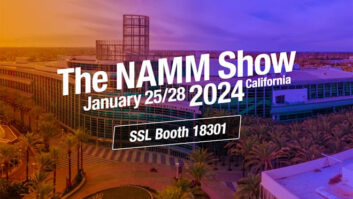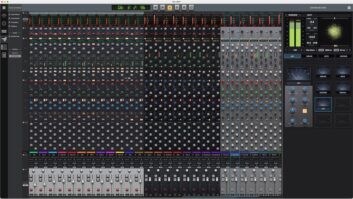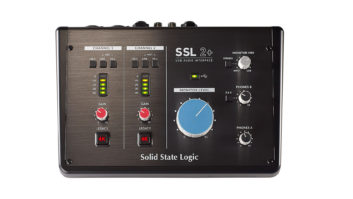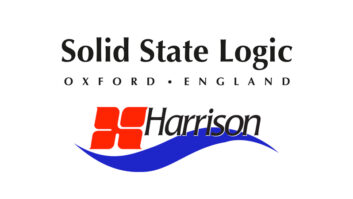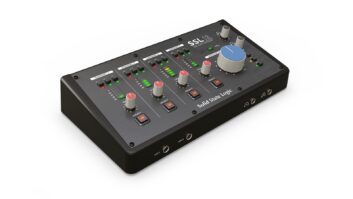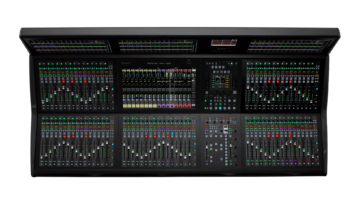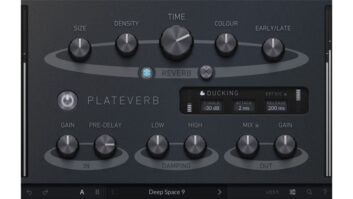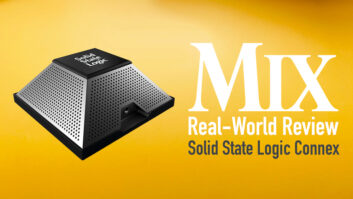Transferring a multitrack session with edits and handles intact from one DAW application to another is a generally fragile process—a process that can break in many different ways and at many different places. The commonly supported EDL (Edit Decision List) and object-oriented exchange standards—most notably OMF, AAF, MXF, AES31 and OpenTL—are no doubt powerful tools. Developed to varying degrees of success by manufacturer consortiums and associations, these standards have gone a long way towards realizing the near-divine quest for free and unfettered media project exchange.
But unilateral changes, application updates, multiple standards versions, handling errors, unsupported/mismatched features and file formats, and countless other quirks introduced by specific platforms conspire to routinely shift the sand underneath what those of us on the sending or receiving end hope will be a stable and predictable transfer process. Add to that the large install base of programs that offer no standard EDL standards support (many “LE” versions) and/or charge a premium to get it as an add-on, and the shifting sands start to spin.
Enter the Pro-Convert V5 ($699) audio project translation tool from Solid State Logic.
Features
SSL acquired developer Cui Bono Soft and its well-regarded interchange application EDL-Convert just prior to the 2007 AES convention in New York, where it promptly announced the first major update to the software in several years.
In the years since its introduction in 2001, EDL-Convert has grown to be one of favorite stealth ninja tools of post houses. With the acquisition and the addition of significant new and updated features, SSL hopes to bring this powerful “secret weapon”—re-branded as Solid State Logic Pro-Convert V5 —to a much wider user base.
Pro-Convert aims to be a one-size-fits-all tool that acts as a go-between for a variety of popular DAW and NLE platforms. Depending on the selected source and output targets, Pro-Convert allows for the translation of edit points, fades, crossfades, markers and PQ data, clip gain, volume and pan curves/automation, track names, clip names and other session data.
The program supports what I would describe as three levels of conversion integration: proprietary, intermediary, and open standard. At the highest level, Pro-Convert can access and translate an application’s native session file format directly without the need for any intermediary export steps.
For example, a stunning new feature in Pro-Convert V5 is the ability to directly read and write proprietary Digidesign Pro Tools 7.x session files (*.PTF), in addition to the previously supported Pro Tools 5.1 format. Other native session file formats supported include Adobe Audition/Cool Edit (*.SES), Steinberg Wavelab Montage (*.MON) and SSL’s own Soundscape Arrangement format (*.ARR).
At the intermediary level, Pro-Convert supports several application-specific interchange formats. These formats were created by a platform’s developer to facilitate the exchange of session data between various versions of the same application, within an application “family” or suite, or the import/export of a specific set of tracks from one project to another within the same application. Unlike proprietary session formats, these intermediaries are XML- or text-based EDLs and thus expose the session data in a readable and ultimately parse-able manner. Also unlike the proprietary formats, the deliberate action of exporting a session from the timeline into the intermediary format is required before it can be used in Pro-Convert. The most notable intermediary formats supported by Pro-Convert include Steinberg XML (Nuendo, Cubase), Apple XML (Final Cut Pro, Logic, Soundtrack Pro), Sony Vegas TXT and XML, Samplitude and Sequoia EDL, and SADiE Interchange.
Pro-Convert also includes standards-based EDL format conversion using OMF (V.1, V.2, and a slew of program-specific OMF templates), AES31, and OpenTL; there is no AAF or MXF support as yet.
According to SSL, when all applications, application versions and interchange standards are counted, over 40 different file formats are supported. Pro-Convert also includes the standalone (though launched from the main program) Audio Tool file format and attribute batch conversion utility.
A detailed list of file formats and supported features can be found on the Solid State Logic website and in the Pro-Convert PDF manual. Note that Pro-Convert, like other conversion software, translates overall session data, timeline audio events and associated pan and level information; it does not convert MIDI tracks, static mixer positions (without automation envelopes) or plug-ins.
In Use
Pro-Convert runs under the Windows operating system (all standard versions between Windows 98 and Vista; 64-bit versions not supported), but can be successfully run on Macs using Boot Camp, Parallels or Fusion. As the manual states, Pro-Convert is not heavy on system resources, and indeed it would be extremely difficult to unearth a computer that doesn’t meet the minimum system requirements – 266MHz processor, 64MB, 20MB hard-disk space, VGA display. For authorization, Pro-Convert uses a CodeMeter USB dongle that is multi-user/multi-license capable for networked facilities.
At the top of the Pro-Convert main interface is a concise “Project Strip” summary of the source project’s vitals that includes the number of clips, source files and tracks referenced on the timeline, as well as project sample rate, bit depth, frame rate, length, size, and offset information; there is also indication of whether the project contains automation, PQ and/or marker data.
Below the Project Strip is a three-pane project explorer that includes a Project Tree (selectable between physical files and track view), a Clip Window that displays all the timeline clips (with source file I/O and timeline I/O points) that belong to the track or file selected in the Project Tree, and a Detailed Clip Window that provides additional data such as fade type and time, mute and lock status and level of any selected clip. On the far left of the main interface is the Convert Strip, which contains all the export file types and associated icons. The strip can be toggled between an overall pool of conversion formats and a user-defined (via drag-and-drop) pool of favorites.
For many interchange tasks, the general conversion process in Pro-Convert can be quite simple: open a supported session file using the standard Windows File>Open dialog; choose the export file type from the pool on the left; use the default settings on the options pages that follow, and choose a location to save the converted project. Once a conversion has been completed, Pro-Convert’s main project explorer interface can be toggled between source and converted session data.
Much of the in-depth power of the program lies in the customization of the conversion dialog pages, which display a set of options tailored specifically to each export type. Though the most commonly appropriate values for each export type are already preset as defaults, it most certainly pays to get familiar with all of Pro-Convert’s conversion options (and limitations) and the capabilities of the respective input and output applications. The excellent Pro-Convert manual provides clear and detailed information on the above; even a brief survey of this information provides insight into the Herculean efforts required to develop and maintain this application’s conversion matrix and its adept, context-sensitive interface.
While there are far too many to list all settings for each export type, common export options include fade management (translate, ignore, replace with alternate type), level and pan automation envelope and region gain management (translate, rescale levels), file location and replace, and audio file and session export options (link to existing source files, create new files, stereo-to-mono split file conventions, change file container type).
During the testing process for this review, I produced a number of sessions designed to test a range of (hopefully) translatable information. These sample sessions were created in Steinberg Nuendo 3 and 4, Pro Tools LE 7.1 and Sony Vegas 7, and cross-tested using Pro-Convert on the local machine. I then enlisted several colleagues around the country to test exports on a variety of other platforms including Logic, Final Cut Pro, Avid Media Composer, Sonar, Samplitude, and Cool Edit/Adobe Audition; I also received sessions to test that originated on several of these platforms.
The results of this mass testing effort were generally impressive—all of the session exports created with Pro-Convert were successfully opened on the target platforms and all incoming sessions were opened on my local programs after using Pro-Convert. That said, even with such a comprehensive “go-between” a few of the projects suffered from perplexing interchange quirks similar to those that can occur with good old OMF transfers.
For instance, a simple four-track Samplitude project with the same two-bar audio file placed on each track (but stair-step staggered so it plays for a total of eight bars) loaded into both Nuendo and Pro Tools missing the first two-bar clip. This project was created to test the handling of fades, region gain, and level and pan automation, all of which translated just fine. Using the project strip and explorer in Pro-Convert, I was able to confirm the error: the clip on the first track was listed as having zero length. This may well have been a problem with the originating program or in the conversion process, but a problem nonetheless. Sometimes there’s just no escaping …
As I stated earlier, most conversions worked flawlessly, and, in general, I couldn’t have been more impressed with the power and speed (or the peace of mind) of Pro-Convert. Oddities such as the above happened very rarely throughout this fairly exhaustive testing process. When certain issues arose, usually a quick trip to the program look-up and cross-capabilities grid in Pro-Convert’s reference materials confirmed the limitations to be with the specific platform (e.g. Steinberg XML does not export marker tracks).
The one thing with which I persistently had trouble—and on which I could find no information—was Acid-ized loops. Without fail, and across many different test sessions and exports, these audio files would result in tiny slices of the audio being dispersed like debris across hours on the timeline. The only solution here was to bounce/consolidate tracks with Acid loops in the session.
Summary
Much of my post-production and sound design work these days is conducted remotely via FTP or FedEx. In these cases—as well as in “client-supervised” sessions—the seamless translation of timeline exports is paramount, especially in tight-turnaround situations. While the concept of truly seamless conversion may be a bit like tilting with windmills or questing for the Grail, the ability to overcome interchange problems with as little friction and minimal back-and-forth with busy production editors is now a real-world, attainable goal.
Solid State Logic Pro-Convert 5—with its direct support of programs such as Pro Tools, Final Cut Pro, Logic, and Nuendo, as well as its custom-designed OMF templates for many more programs including Avid, Digital Performer, Sonar, and AMS Audiofile —is an essential tool to help reach this goal. The ability to not only accommodate these disparate formats but also get a look-in at (and modify if necessary) the specifics of the incoming and outgoing session data makes Pro-Convert an extremely valuable asset for any engineer or facility that deals regularly with project exchange.
Fast Facts
Key Features
DAW/NLE session conversion supporting over 40 different audio applications and versions; context-sensitive feature set and method of conversion per export format; standalone Audio Tool file format and attribute conversion.
Price
$699
Contact
Solid State Logic | solid-state-logic.com
Product Points
Plus
- Unprecedented detail and control of conversion process
- Directly supports native Pro Tools 7.x session files
- Many program-specific OMF templates maximize functionality of transfer and minimize incompatibility
Minus
- Poor Acid-ized file handling
- No AAF support
- Expensive for those paying in USD
Score
Pro Convert offers the ability to overcome audio file interchange problems with relative ease.
